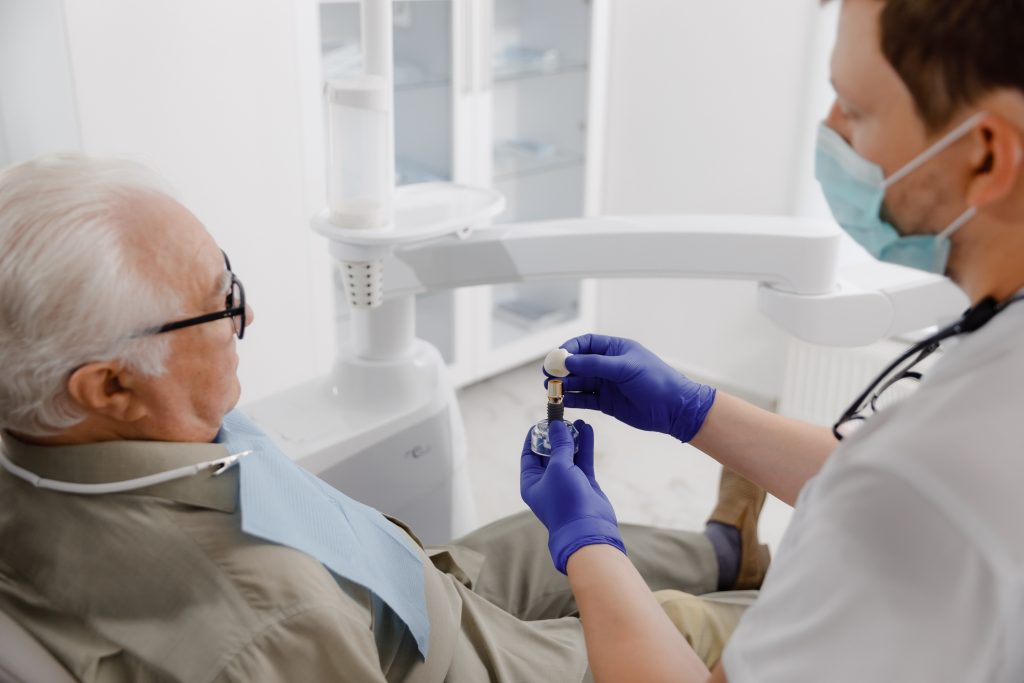Restorative Care

Restorative care focuses on repairing and replacing damaged or missing teeth to restore the functionality, structure, and appearance of a healthy smile. This type of dental care is essential for maintaining the integrity of the mouth, preventing further damage, and improving overall oral health. Whether it’s a chipped tooth, a cavity, or a missing tooth, restorative treatments aim to bring the mouth back to optimal condition, allowing patients to speak, chew, and smile with confidence.
A well-executed restorative treatment does more than repair damage — it prevents future complications. Damaged or missing teeth can lead to problems such as shifting teeth, bone loss, and difficulties in chewing or speaking. Restorative care addresses these concerns, improving both oral health and quality of life. With modern advancements in dentistry, restorative treatments have become more durable, natural-looking, and comfortable, giving patients long-lasting results.
Crowns and Bridges
Crowns and bridges are common solutions in restorative dentistry for repairing damaged teeth and replacing missing ones.
A dental crown is a custom-made cap that covers a damaged or weakened tooth to restore its shape, size, strength, and appearance. Crowns are often recommended for teeth that have large fillings, are cracked or broken, or have undergone root canal treatment. The crown protects the underlying tooth from further damage and restores its functionality, allowing patients to chew and bite without discomfort.
A dental bridge is used to replace one or more missing teeth by anchoring an artificial tooth to the surrounding natural teeth or dental implants. The adjacent teeth act as supports, providing stability to the bridge. Bridges not only restore the appearance of a complete smile but also prevent neighboring teeth from shifting into the empty space, which can cause bite alignment issues.
Crowns and bridges improve oral health by protecting damaged teeth and filling gaps left by missing teeth. They enhance both function and aesthetics, helping patients regain confidence in their smile.
Dental Implants
Dental implants are a permanent and highly effective solution for replacing missing teeth. They consist of a titanium post that is surgically placed into the jawbone, serving as a replacement root for the missing tooth. Once the implant has fused with the bone through a process called osseointegration, a custom crown is attached to the post, completing the restoration.
Implants are considered the gold standard for tooth replacement due to their durability, stability, and natural appearance. Unlike other restorative options, dental implants help preserve the jawbone by stimulating bone growth, preventing bone loss that typically occurs after tooth loss. This makes implants a long-term investment in both oral health and aesthetics.
Dental implants restore full functionality, allowing patients to eat, speak, and smile without worry. They are a reliable option for individuals looking for a permanent solution to tooth loss.
Fillings
Fillings are one of the most common restorative treatments used to repair teeth that have been damaged by cavities. The process involves removing the decayed portion of the tooth and filling the space with a restorative material, such as composite resin, silver amalgam, or gold. Composite fillings are popular for their natural tooth-colored appearance, making them a preferred choice for visible teeth.
In addition to repairing cavities, fillings can also be used to fix minor chips or cracks in teeth. By restoring the tooth’s structure, fillings help maintain the tooth’s function and prevent further decay or damage. Modern fillings are designed to be durable and long-lasting, ensuring that patients can enjoy a healthier smile for years.
Fillings play a crucial role in preventive care as well, stopping small cavities from turning into more serious dental issues that may require more invasive treatments like crowns or root canals.
Benefits of Restorative Care
The benefits of restorative care extend far beyond just fixing damaged teeth. These treatments improve oral functionality, enabling patients to chew and speak properly. Restorative procedures also enhance the overall aesthetics of a smile, boosting confidence and self-esteem. Furthermore, by addressing dental issues early, restorative care prevents more severe complications, such as tooth loss, infection, or misalignment.
Additionally, restorative care contributes to long-term oral health by preserving natural teeth whenever possible and supporting the health of surrounding structures like gums and jawbones. For patients, this means fewer dental visits in the future, reduced discomfort, and an improved quality of life.
Restorative care is an essential aspect of maintaining a healthy, functional, and attractive smile. From crowns and bridges to dental implants and fillings, each treatment is designed to address specific dental challenges while improving overall oral health. By prioritizing restorative care, patients can enjoy the benefits of a strong, confident smile and avoid more complex dental issues down the line. Investing in these treatments ensures not only better oral health but also a renewed sense of confidence and well-being.
